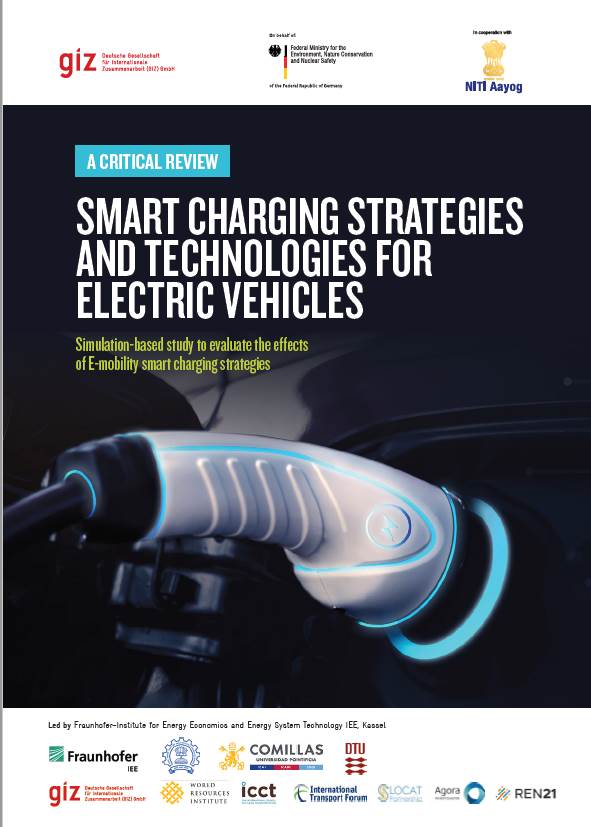Reports
The report provides a technology and policy framework for the mobility, energy and real estate sectors to enable conditions for a timely, sustainable and fair transition to 100% electric fleets, ac...

A Critical Review: Smart Charging Strategies and Technologies for Electric Vehicles
2021
Author(s): Rather Z (IIT Bombay), Dahiwale P (IIT Bombay), Lekshmi D (IIT Bombay), Hartung A (Fraunhofer IEE)
The report focuses on Electric Vehicles (EV) smart charging strategies and approaches, related policy and regulatory measures, technical aspects, grid integration of EVs, and the way forward for smooth EV adaption in the Indian EV ecosystem.
Electric buses (e-buses) have caught the attention of the Indian public transport operators due to their ability to address the issues of rising greenhouse gas emissions, and air and noise pollution caused by conventional fuel buses.
Phase II of the Faster Adoption and Manufacturing of (Hybrid &) Electric Vehicles (FAME) India is envisioned to introduce 7,000 e-buses across the country by 2024.
Electric mobility has gained momentum worldwide as a sustainable choice in reducing greenhouse gas emissions and improving air quality.
Vehicle numbers and freight transport are growing rapidly in India leading to an exponential rise in fuel consumption.
How to Manual: Siting Electric Vehicle Charging Stations in Indian Cities
2022
Author(s): Natural Resources Defense Council (NRDC)
Increasing the fleet of electric vehicles (EV) and charging infrastructure in India are key to improving air quality in cities, enhancing energy security by reducing dependence on imported crude oil, and fighting climate change. India aims to have at least 30 percent of new vehicle sales be electric by 2030 and could potentially have 102 million EVs on the road.
Making the Connections: Final Report on Transport and Social Exclusion
2003
Author(s): Social Exclusion Unit
This report examines the links between social exclusion, transport and the location of services. It is particularly focused on access to those opportunities that have the most impact on life-chances, such as work, learning and healthcare.
Clean Cargo is the leading buyer-supplier forum for sustainability in the cargo shipping industry. Members are major brands, cargo carriers, and freight forwarders that share a vision of a shipping industry that is a responsible part of sustainable supply chains, which supports clean oceans, healthy port communities, and global climate goals.
Decarbonising Transport in India: Learning from Life Cycle Assessment
2021
Author(s): International Transport Forum (ITF)
This publication presents a summary of the workshop “Life cycle assessment methods to support India’s efforts to decarbonise transport” organised by the International Transport Forum and the National Institute for Transforming India (NITI Aayog) in April 2021.



